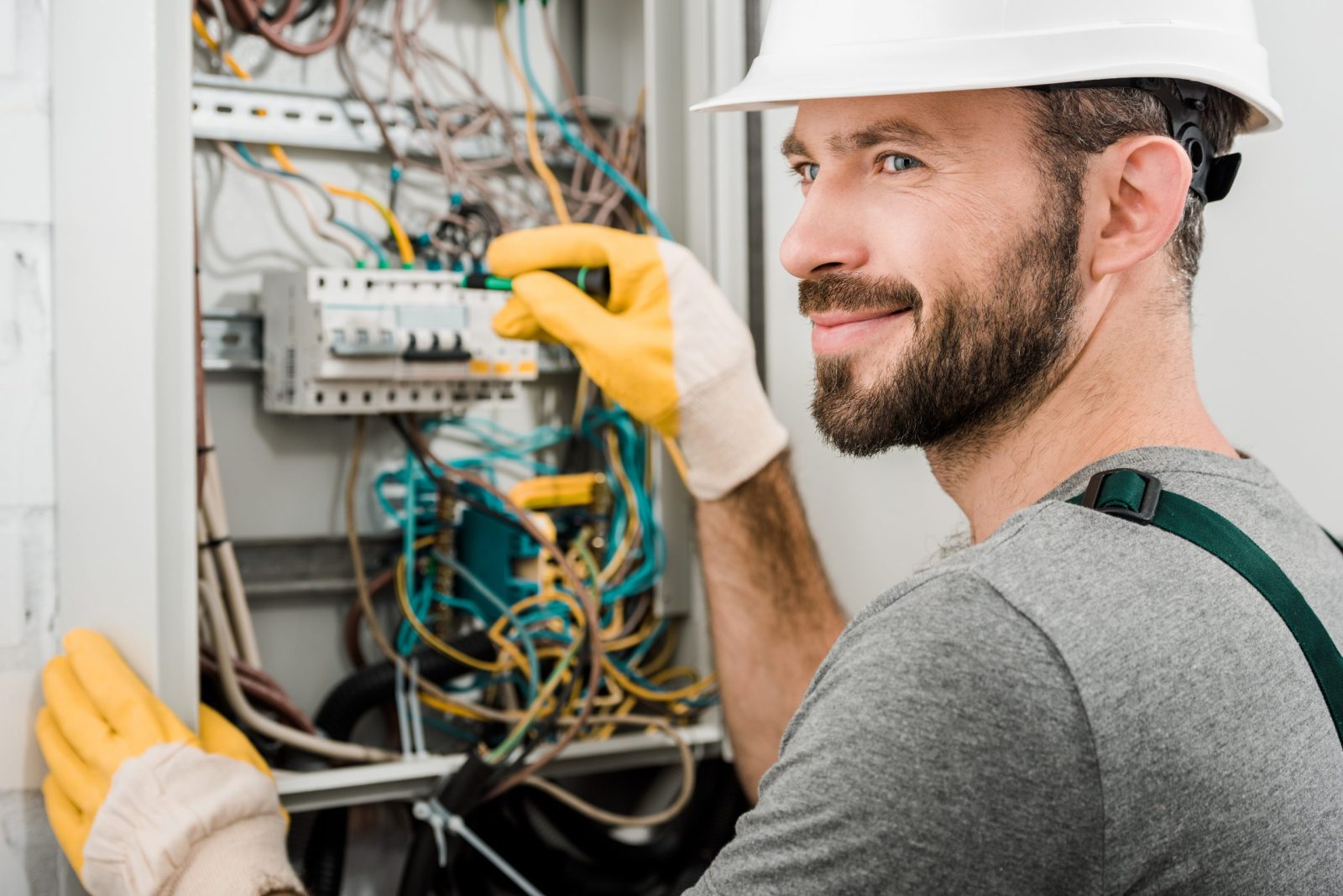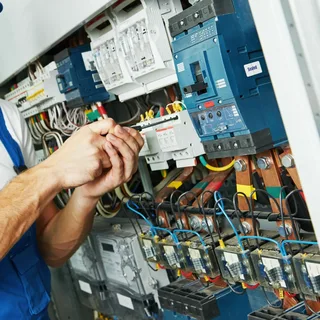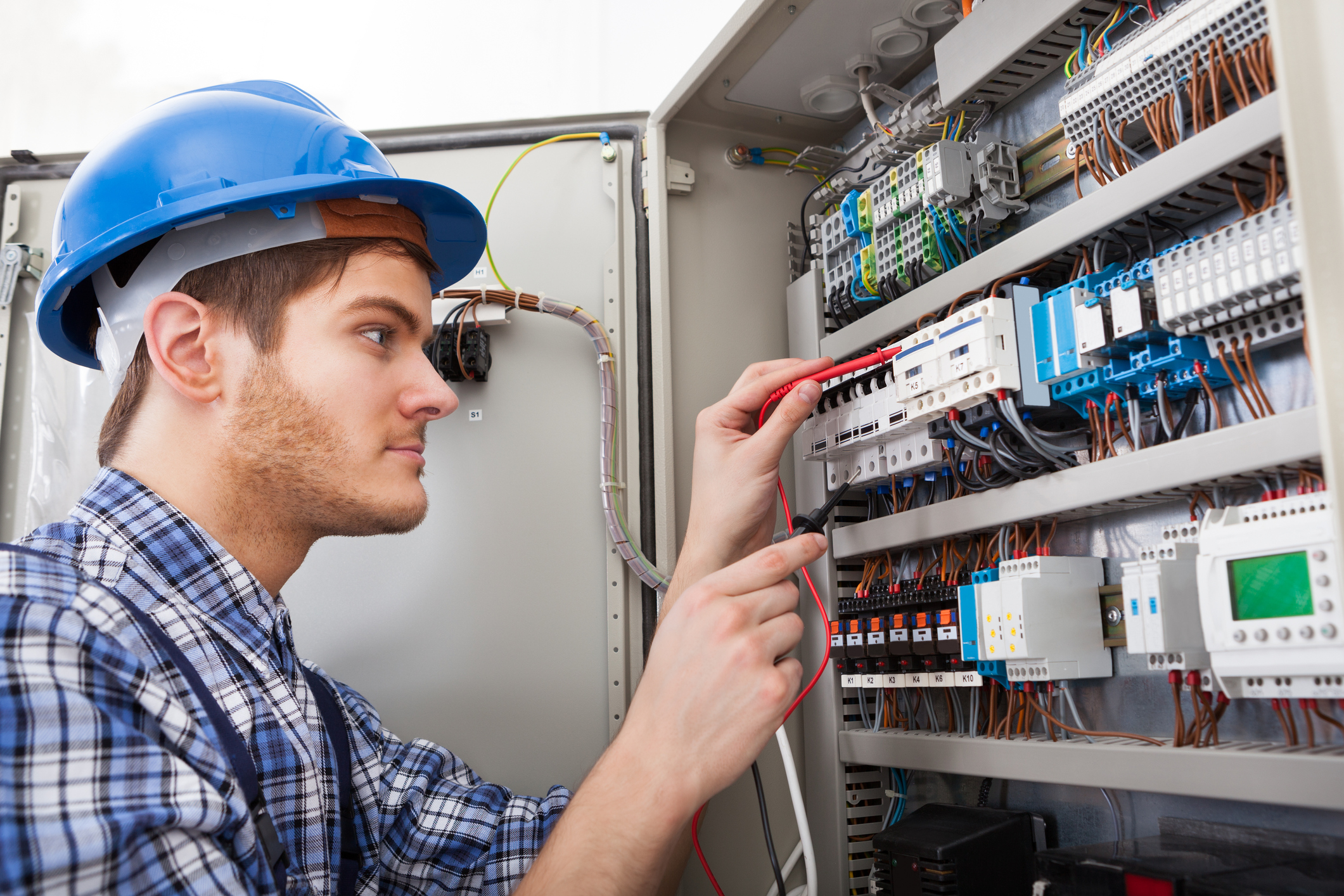Choosing a suitable electrician is very important to homeowners and business owners. Electrical systems are the backbone of all properties, such as buildings and power everything from lighting and appliances to security and heavy machinery. Poorly done electrical work has many negative implications, including safety risks, high energy costs, and frequent electrocute breakdowns. Given how significant these systems are, it is integral that one ensures they get a qualified and reliable contractor who is in proximity to meet your needs and requirements satisfactorily.
Understanding Your Electrical Needs
Determining what you need in terms of electricals is the first step toward choosing the right Commercial & Residential Electrical Contractor. These projects can vary from minor repair and upgrade work to large scale installations and emergency repairs. You have to know about what you need. The fact will help you locate a contractor who deals particularly in those arenas, and hence you can rest assured of the most effective service that you can think of.
Residential Electrical Needs:
Homeowners’ most common needs in residential electrics are wiring and rewiring, lighting installations, panel upgrading, and routine maintenance. Homeowners might seek other services like smart home installations, security system wiring, and energy-efficiency upgrades. Knowing just what you need ensures that the contractor you settle on is the one who deals in residential electrical work and that he or she will be in a position to ensure that safety, efficiency, and correct coding are the top priority for your home electrical system.
Commercial Electrical Needs:
Many businesses require more complex electrical facilities. These require the existence of an electrical system capable of handling heavy loads as well as high-powered and sophisticated equipment. Some of the most common services for large-scale buildings include its power distribution servicing, data cabling, emergency lighting, and electrical maintenance. Large buildings will also need services such as generator installation, industrial machine wiring, and energy management systems. It’s because you need a contractor who has done this type of work before to ensure your commercial electrical work is safe and efficient.

Research Potential Electrical Contractors
Once you have clearly outlined your needs, the next step should involve researching potential contractors. By searching or researching, you will have to find a Reliable Electrical Services
contractor with relevant experience in the sector to be assured of fulfilling your needs. Data retrieved in this step may include previous customers and the quality of service delivered.
Importance of Online Reviews:
Online reviews provide a convenient platform to influence the review of electrical contractors. Websites such as Google, Yelp, and the Better Business Bureau have reviews written by customers on the contractors. For even more details, reviews can usually explain if a contractor is a serious professional in customer services. The exact nature of dealing with a job, and the quality of the work. Look for patterns, though; many voices clamoring and crying the same thing, good or bad, suggests a reliable contractor. Many consistent reviews showing ever-positive, or even more glowing reviews, point toward having a good, solid contractor.
Testimonials and Case Studies:
Besides the online reviews, on-case studies and testimonials available on the contractor’s page. It provide some useful hints about past projects and client satisfaction levels. Look out for testimonials from clients that have needs similar to yours. As they can greatly boost your confidence that the contractor can handle your project. Case studies can also allow us to judge the problem-solving side of the contractor. How they approach bigger and more complex projects, and their track record in delivering timely and cost-effective results.
Personal Recommendations:
Personal recommendations are also a very powerful tool in your search. Ask friends, family, or colleagues for anybody involved in local electrical contractors. Especially those who have had similar work done recently. Personal recommendations find affordable electrical experts who will not necessarily have a big presence on the internet but will be widely praised locally for their quality work and reliability.
Verifying Credentials and Experience
Once you have the list of potential contractors, the next crucial step is to vet the credentials and experience that the contractor is vested with; this will involve making sure that the contractor is eligible to carry out your project and their work, and that history confirms a good track record.
Licensing and Certification:
A reputable licensed and certified electrical contractor in your jurisdiction will have passed the exams required, meet that state’s minimum safety and competency standards, and probably also have industry certifications from the NECA (National Electrical Contractors Association) or the IEC (Independent Electrical Contractors), which will set a level for professional development and compliance with standards. General licensing requirements and standards vary from state to locality, but generally, a contractor has passed the exams required and meets minimum standards for safety and competency. Then there are industry organizations offering certification showing certain qualifications—like being a NECA (National Electrical Contractors Association) or IEC (Independent Electrical Contractors) member which will ensure a certain level of professional development and compliance with standards.
Specialization and Experience:
Experience is one of the most crucial factors to consider in an electrical contractor. Electric contractors claiming to be in the business for so many years are likely to have encountered and thereafter addressed numerous problems. This, therefore puts them in an excellent position to serve your project. Apart from general experience, consider if the contractor specializes in the work you need. For example, some typically focus on residential projects, while some specialize in both commercial and residential projects. Choose a contractor who has experience working on projects similar to yours because he or she will easily understand the challenges and causes of a problem and will then provide quick and effective solutions for it.
Portfolio of Past Work:
A review of a contractor’s portfolio, which should give a very good hint about the variables in that contractor’s capabilities and style, should include examples of work done on similar projects of similar dimensions and level of complexity to the design under consideration. Quality, type, and scale of the project, in that order of importance to the owner, are often good indicators. Versatile and capable contractors will have a varied portfolio with projects of different types and sizes that show successful outcomes.

Comparing Quotes and Services
Once you have identified the qualifications and experience of the potential contractors, you will have to be courageous and compare quotes and services. This step will help you get a mix of the best cost, quality, and scope of services offered.
Ask for Detailed Quotes TOP:
Ask for an itemized breakdown of costs. A good quote will most often include labor, materials, permits, and other services needed for the work to be done correctly. It’s important to compare these carefully, as the lowest upfront cost does not always represent the best value. Don’t necessarily be fooled by those who offer extremely low quotes, as this may convey bad materials, inexperienced labor, or hidden costs that might come later in the project.
Assessing the Scope of Services:
Other than comparing their prices, consider how much scope of services each one offers. Some contractors come with other additional services, such as emergency repairs, maintenance programs, or energy efficiency consultations, which can be quite useful in the long run. Further, think of the availability and reaction time of the contractor. Fast response to issues or emergencies by a contractor will be valued—that is, it is invaluable to commercial properties, for instance, where an electrical failure results in much downtime and financial losses.
Compare Payment Terms:
Most of the contractors will vary in terms of payment, and you should, therefore, know how and when you are supposed to pay them. Some will need a deposit upfront and the rest once the work is done, and others will offer financing or any other payment plans. Be clear on such terms before accepting any, and make sure everything agreed upon is well within your budget and financial disposition.
Reviewing Warranties and Guarantees
Warranties and guarantees should play a crucial role in what contracts you sign with your electrical contractor. These protections ensure you will not have unplanned expenses from their work in case something goes wrong after the completion of work.
Product Warranties:
Some contractors may also offer warranties on the equipment they install, such as electrical panels, wiring, or fixtures. The fact they are used implies the quality of the products and that they can be relied upon to do their job. Inquire about the terms of product warranties: the duration and conditions under which they are valid and what you will need to claim if an issue arises.

Compare Communication and Customer Service
Effective communication and effective customer service are very key in ensuring the success of your electrical project. The contractor you settle on should be very responsive, articulate, and keen on listening to any queries you may have.
Initial Meeting and Communication:
Pay attention to communication from your contractor right from the first encounter. Even during this face-to-face meeting, are they giving you the necessary attention and answering your questions thoughtfully, or are they trying to brush you off? Feel comfortable with their process. Making what you believe to be your needs understood, and understanding how the contractor can help you and in what ways, is an important step in the equation for success.
Responsiveness and Availability:
Also, take into account the overall responsiveness of the contractor and their availability. A good contractor is one whom you should be able to reach through calls, email, or in person and who is keen to attend to and respond quickly to your inquiries. This is very important, especially in projects that have very tight deadlines or in business. Where in case of any downtime, major financial losses may be incurred by the business. A contractor available at the time of need will get the project completed in time while at the same time handling those issues that may arise quickly.
Customer Service Reputation:
Equally important, it would consider the reputation of the contractor in customer service. Find reputed companies known to be reliable and professional in executing jobs potently and maintaining satisfied customers. Online reviews, testimonials, and personal recommendations would shed light on a contractor’s customer service experience. Be sure to ask about the contractor’s process for handling disputes or issues during a project. As it might reveal important things regarding their commitment to reaching customer satisfaction.
Contract Signing
With the selected contractor, next is to sign the contract. The scope of work, timeline, cost, and warranties available are detailed in the following.
Scope of Work and Timeline:
A detailed description of the work, including any particular materials or products, should be noted in the contract. This includes the timeline of when the project is to commence and be completed. Discuss this with the contractor so that the timeline aligns with your expectations and deadlines, if any.
Payment Terms and Schedule:
The contract should also outline the terms of payment, and the schedule, and specify any deposits, payments for work completed along the way, and the final payment after the job. Be sure you understand and can live with the payment schedule before you sign the contract. It’s also wise to discuss what will happen if the job takes longer than scheduled or if you decide you want extra work done since these occurrences can also end up costing you more and taking more time than you originally budgeted for.
Warranties and Guarantees:
Ensure that any warranties or guarantees the contractor offers are clearly stated in the contract. This should include the duration and coverage of both workmanship warranties and product guarantees and the process for claiming if an issue arises.
Dispute Resolution:
Last, the contract should include a clause for resolving any disputes arising during the work. This can be done via mediation, arbitration, and other means of dispute resolution. A clear dispute resolution process can ensure that misunderstandings are prevented and any issues are resolved immediately and fairly.
Conclusion:
Choosing the Best Electrical Services Specialists for one’s house or office requires proper attention to suit their peculiar needs. According to proper contractor qualifications, experience, and customer practice. Following the steps identified in this guide, the contractor you identify will provide you with qualified, reliable, and trustworthy services. The services will, in turn, come your way as high-quality, safe, and efficient electrical services. Good contractors can make all the difference in the success of your project, be you a homeowner making an upgrade of wiring or a business operator, requiring sophisticated electrical installations.

